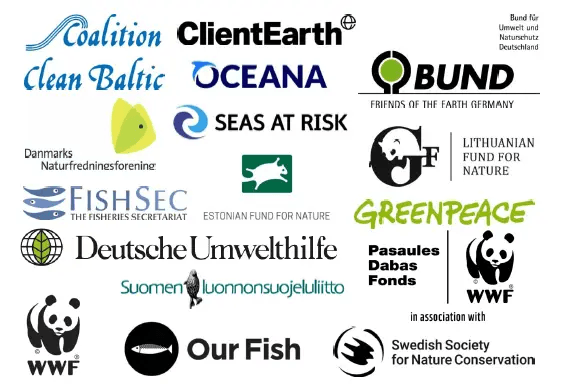Joint NGO recommendations on Baltic Sea fishing opportunities for 2022

In October 2021, EU fisheries ministers will agree on fishing opportunities in the Baltic Sea for 2022. As the deadline to end overfishing by 2020 at the latest as legally prescribed by Article 2(2) of the Common Fisheries Policy (CFP)1 has passed, all fishing limits must be in line with sustainable exploitation rates.
Last year, fisheries ministers set 2 out of 10 Total Allowable Catches (TACs) in the Baltic Sea exceeding the best available scientific advice for 2020, thereby contravening the CFP deadline. The European Commission proposal already included these 2 TACs, for eastern Baltic cod and western Baltic herring, exceeding scientific advice, while ministers also further increased catch limits beyond levels proposed by the European Commission for western Baltic cod, Baltic sprat, Baltic plaice and salmon in the Gulf of Finland.
The results of the holistic assessment by the Baltic Marine Environment Protection Commission (Helsinki Commission, HELCOM) on the state of the Baltic Sea reflect that several action areas lag behind in implementation, despite the deadline for achieving Good Environmental Status (GES) of the marine environment by 2020 according to the Marine Strategy Framework Directive (MSFD) and by 2021 according to the Baltic Sea Action Plan (BSAP)2. The European Green Deal3 commits the EU to tackling the impacts of climate change and protecting and restoring biodiversity. Specifically, the EU Biodiversity Strategy4 commits to ecosystem-based management, a transition to more selective and less damaging fishing methods, and to set all fishing limits at or below Maximum Sustainable Yield (MSY) levels, in order to restore ocean health. The Action Plan to conserve fisheries resources and protect marine ecosystems noted as a deliverable in the Biodiversity Strategy must become a crucial strategy to improve implementation of, and fill obvious gaps in, EU policies to put European fisheries management on a path where the full ecosystem and climate impacts of fishing are properly measured and mitigated. We are running against the clock to stop the collapse of the Baltic Sea ecosystem and deliver on political promises to halt the climate and nature crises.
The setting of fishing opportunities at sustainable levels is an essential precondition to deliver on these promises. The European Ombudsman has confirmed that fishing opportunities documents contain ‘environmental information’ within the meaning of the Aarhus Convention, and made recommendations to improve the transparency of the Council when setting fishing opportunities. The Ombudsman further confirmed a finding of maladministration in April 20205, expressing disappointment that Council decision-making contravened key democratic and transparency standards.
The October AGRIFISH Council provides the Commission and fisheries ministers with a clear and attainable opportunity to deliver on their commitments in the updated HELCOM Baltic Sea Action Plan and the Our Baltic Declaration from 2020, as well as on their legal obligations according to the CFP to end overfishing. It is also an opportunity to begin to realise the ambition of the Biodiversity Strategy.
The following text outlines the joint NGO recommendations on Baltic Sea fishing opportunities for 2022 in the context of environmental regulations, EU fisheries legislation, scientific advice on catch limits, and the sharing of stocks with third countries.

